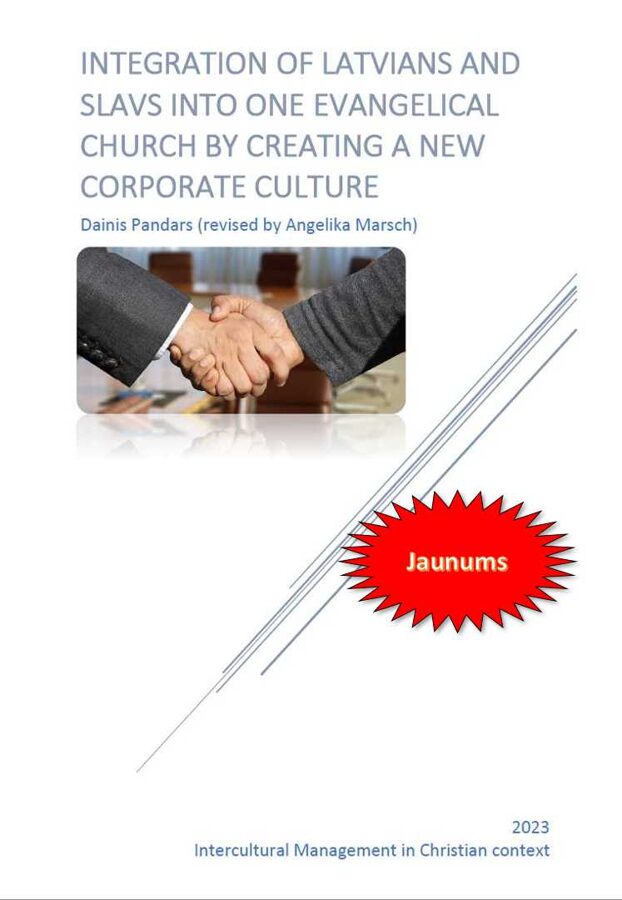INTEGRATION OF LATVIANS AND SLAVS INTO ONE EVANGELICAL CHURCH BY CREATING A NEW CORPORATE CULTURE
Dainis Pandars
The Christian church is a unique community that has expanded in the whole world in different countries, cultures, and regions. The church has been ordained to have a ministry of reconciliation (2 Cor 5:18) and to be one of the catalysts of peace in the world. In the Holy Scriptures’ it is called “the fullness of him who fills all in all” (Eph 1:23). But at the same time, there is a phenomenon of cultural myopia (Lewis 2018) which has been an obstacle to creating multi-cultural churches. A similar type of cultural clash I have been noticing in Latvian Christian congregations where there is a division between Latvian and Slavic churches. Georges (2017:74) states that cultural barriers minimize the glory of God, but glorifying God is the first purpose of the Christian church (Warren 1995:103). No matter the denomination – the absence of multicultural and bilingual worship services in Latvia is obvious with exception of some rare ones, mostly denomination-free or charismatic churches. In a context where 60,2% of country habitants are Latvians and 24,4% are Russians (www.csp.gov.lv), the question can be raised - why ¼ of the population is still separated from the rest of the people group in religious communities? Is it a cultural problem, a church leadership problem, or something else? In this essay, I cannot provide a fully investigated answer, because there is a necessity to conduct more studies in this field, but my objective is to observe some possible cultural clashes between Latvian and Slavic cultures and to provide some possible integrative suggestions for creating a new church culture in which both sides could be united in the Gospel-centered community and not be stuck in their cultural dip. The context is evangelical churches or non-liturgical churches like Baptists, Pentecostal, Seventh Day Adventists, Methodist, non-denominational and charismatic churches. The reason for choosing the context of evangelical churches is mostly their structural flexibility and greater openness toward change due to their recent history compared to liturgic, orthodox, and historic denominations such as Lutherans, Catholics, Orthodox, and Old Believer Orthodox.
The rest of the material in digital PDF format for only 0.99 EUR you can purchase here>>

